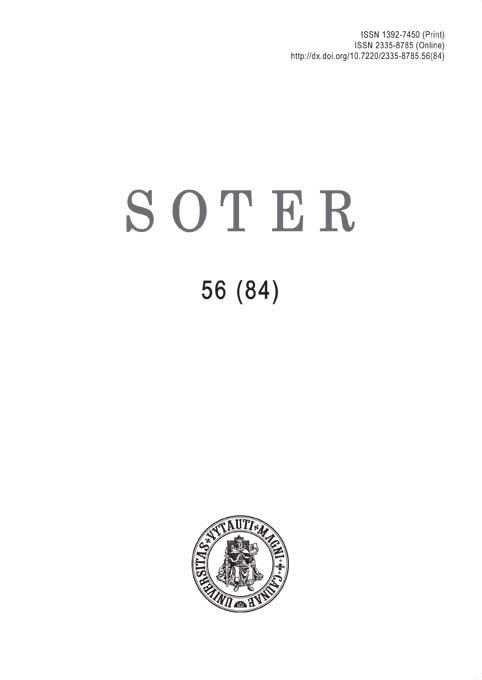Lytinis tapatumas (transseksualizmo atvejis) Kanonų teisėje
THE SIGNIFICANCE OF GENDER IDENTITY (THE CASE OF TRANSSEXUALISM) IN CANON LAW
Author(s): Kazimieras Meilius, Jonas Juškevičius, Agnė ŠirvinskienėSubject(s): Theology and Religion, Religion and science
Published by: Vytauto Didžiojo Universitetas
Keywords: Gender identity; Transsexualism; Gender reassignment; Canon Law, Marriage; Consecrated life; Baptism
Summary/Abstract: Straipsnyje apibūdinama lytinio identiteto sąvoka, transseksualumo fenomenas bei nagrinėjamos problemos, ky¬lančios taikant Kanonų teisę, kai susiduriama su lytinio identiteto sutrikimais (transseksualizmu). Didelis dėme¬sys skiriamas santuokos sudarymo, jos negaliojimo, pašvęstojo gyvenimo klausimams bei krikšto sakramentui ir transseksualų galimybei tapti krikšto tėvais. After examining how gender identity is being understood and how transsexualism is being defined, the article focuses on the problems faced by the Canon Law, when the Canon Law is supposed to address issues of gender identity (transsexualism). The authors analyse the legitimacy of marriage in the case of transsexualism, discuss the issues arising in the consecrated life and the sacrament of baptism while answering the question whether a trans¬sexual person is capable of becoming a godparent.
Journal: SOTER: religijos mokslo žurnalas
- Issue Year: 84/2015
- Issue No: 56
- Page Range: 49-73
- Page Count: 25
- Language: Lithuanian

